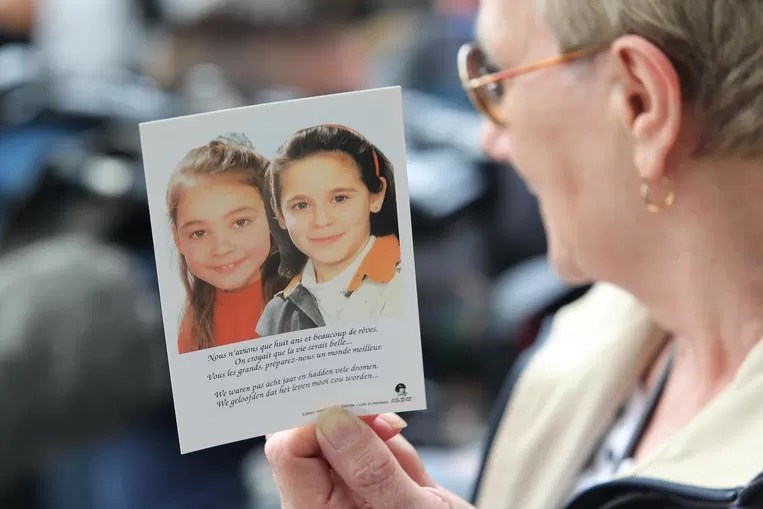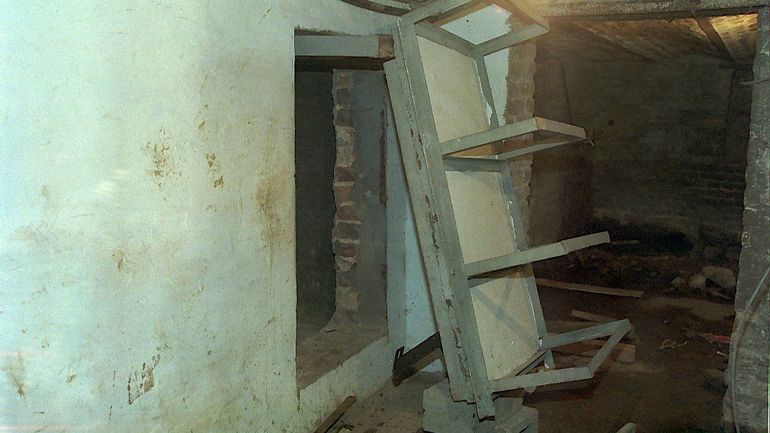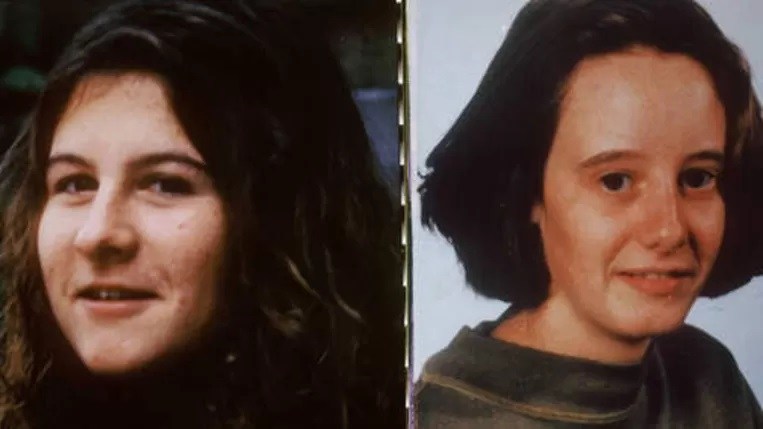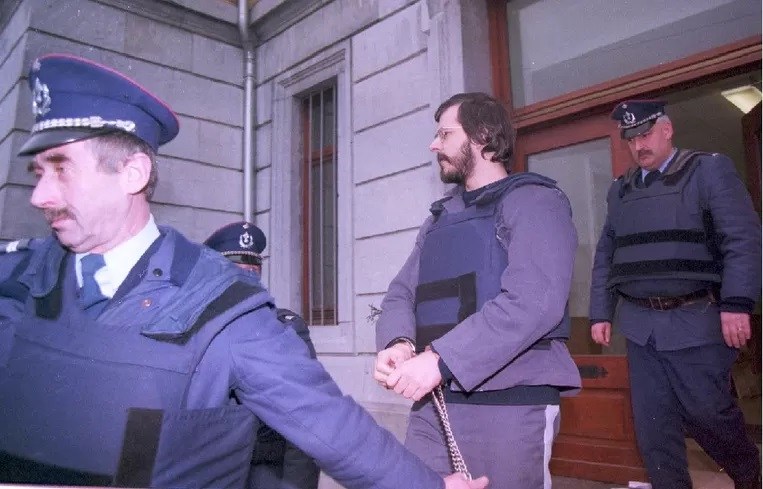Exactly 25 years ago today, on 15 August 1996, TV audiences in Belgium witnessed the release from captivity of two young girls from a grisly cellar in Marcinelle by Charleroi.
The case that was about to follow would see three convictions, the solution to four other missing person cases, and would eventually lead to the reform of the justice system and the total overhaul of the policing system in Belgium.
9/8/1996: Laetitia Delhez, then aged 14, vanished after leaving the public swimming pool in Bertrix in Luxembourg province on 9 August. A witness remembered a scruffy white van making a terrible engine noise, and took down a partial registration number. The van belonged to Dutroux, who police quickly found had previous convictions for rape.
13/8/1996: Police raid the various houses owned by Dutroux and make three arrests: Dutroux himself, his then-wife Michelle Martin, and Michel Lelièvre - a petty crook and drug addict who depended on Dutroux for whatever he had.
15/8/1996: "I’m going to give you two girls." With those words to a police investigator, Marc Dutroux, a scrap dealer and convicted rapist, was about to seal his own fate for life, as well as save the lives of two teenage girls and solve the mystery of the disappearance of four others.
The job of interrogating Dutroux fell to gendarme Michel Demoulin, who recently told the VRT: "It made no sense to immediately confront him with the question of whether he had kidnapped Laetitia Delhez. I had to start the conversation first and build a relationship of trust with him."
Surprisingly, the house searches turned up nothing, despite the presence of sniffer dogs. Police thought they were looking for one girl. In the end, Dutroux gave up two.
28/5/96: Sabine Dardenne, aged 12, goes missing on her way to school in Tournai. By August, the trail had gone cold, like so many other cases of missing children. But when Dutroux offered to hand over two girls instead of just one, the second turned out to be Sabine, who was being kept prisoner in the same miserable dungeon as Laetitia. The two girls were liberated together. Laetitia had been captive for six days, Sabine for 80.
The liberation of the two girls, and further confessions by Dutroux and confederates, soon made it clear that not only two girls had been victims of his crimes, but six.
24/6/1995: Two eight-year-old friends, Julie Lejeune and Mélissa Russo from Grace-Hollogne near Liège are out walking together when they disappear apparently without trace. The case is picked up by the gendarmerie, but little progress is made. The two sets of parents, who are to become household names and faces across the country, will not accept the lack of progress and move heaven and earth to get results, at some personal cost.

Photos of Mélissa (left) and Julie were seen all over the country. © Belga
17/8/96: The bodies of Julie and Mélissa are recovered buried at one of the houses owned by Dutroux-Martin in Sars-la Buissière. The two children had been locked up in an underground cell built specially and had starved to death while Dutroux was in prison on other charges. His wife, Martin, had been charged by him to feed the girls, he argued, but she had been afraid to visit the house. Later, their bodies had been frozen in bin-bags for a time before being buried.

The cellar where the girls were held. Credit: Belga
22-23/8/1995: Shortly after the abduction of Julie and Mélissa, Dutroux broke with his habit and committed his next crime in Flanders, abducting Eefje Lambrecks (19) and An Marchal (17) in Ostend after they had attended a hypnosis show while on holiday at the coast with their parents.
3/9/1996: The remains of An and Eefje are recovered in the grounds of a Dutroux property in Jumet near Charleroi. Also in the same burial place, the body of Bernard Weinstein - a former accomplice who Dutroux murdered over some dispute - was found.

An (left) and Eefje.
1/3/2004: The trial of Dutroux, Michelle Martin, and Michel Lelièvre begins in Arlon, as well as Michel Nihoul, a Brussels-based businessman accused of being an accomplice in the press, but charged only with conspiracy to provide drugs.
17/6/2004: The jury returns its verdict. Dutroux: guilty of six charges of kidnapping and four of murder, as well as three counts of the rape of girls in Slovakia. He is sentenced to life imprisonment, considered to equate to 30 years, but can be detained for a further ten years at the discretion of the government. The sentence dates back to his first arrest in 1996, meaning he could still be in prison until 2036.
It remains legally possible but unlikely that he would ever be released into society. In all likelihood, he would be committed to a psychiatric forensic unit for the rest of his days.
Martin was sentenced to 30 years and is already at liberty under conditions. Michel Lelièvre received 25 years. He, too, is now free. Nihoul was given five years for drugs charges and died in 2019.

